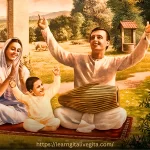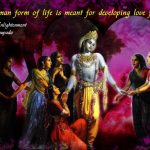The Purpose Of life – Although not many of us question our existence and the purpose of our life, we ultimately reach a point where consciously or unconsciously we have to decide what we plan to do with it. As humans, we have been given only a limited time on this planet and almost all of us have the desire to do something meaningful out of it. For each individual, this ‘meaning’ might vary but everyone will have something that is their calling. Be it achieving monetary success, fame, family, spirituality etc. The importance of a purpose is therefore very high because we are not machines who just follow a certain code but are sentient beings with the ability to think about our actions unlike the animals which follow the instincts of the senses.
The Purpose of Life
Published on: June 4, 2021
| Last Updated on: February 24, 2026




